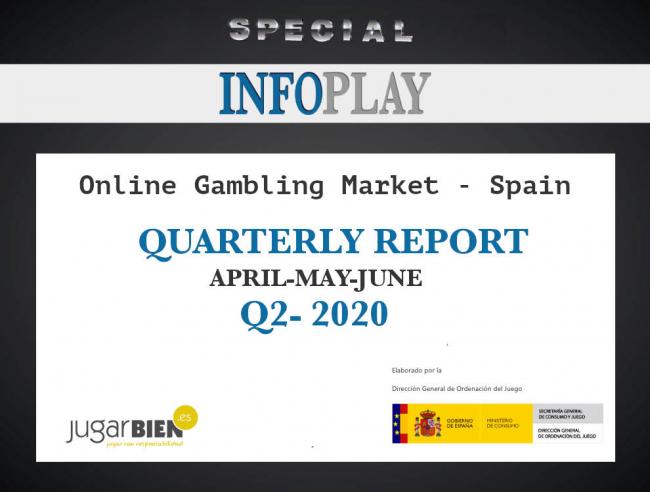Spanish Gambling Sites
Spain is a member of the European Union and the native currency of Spain is the Euro. Thanks to the Euro, citizens of Spain have access to lots of online gambling sites. Europe is a major market for online casinos, especially after many were forced out of the North American market. Because of a focus on the European market, it’s easy to find online casino sites that do business in Euros.
- Spanish Gambling Sites Free
- Spanish Gambling Sites Online
- Spanish Gambling Sites
- Best Sports Gambling Sites
- Spanish Gambling Sites Near Me
Real Madrid versus Atletico Madrid on Sunday, March 7 highlights the top La Liga soccer matches from Friday, March 5 through Monday, March 8. Check out analysis, current LaLiga odds, and free picks for the weekend’s best matches in La Liga’s Primera Division. Sep 08, 2017 Spanish 21 is a complex game that involves quite a bit of strategy. This is why my first tip was to look for a strategy chart that specifically matches Spanish 21. But there are two situations where you don’t need to refer to a chart, including the following. An appetite for gambling is a national trait of the spirited Spaniards and has governed the rapid development of the gambling industry in this country on the Iberian Peninsula. February 2021 Most Visited Spanish Betting Sites.
Spanish online casinos are any online casino sites that accept bets from citizens of Spain and allow financial transactions in Euros. Though the legal landscape of online gambling in Spain is changing, Spanish people do for the most part currently have access to legal online gambling. Big changes are on the horizon for online gambling in Spain, as the Spanish government moves to regulate and control online casino gambling much like state governments in the US or governments in some regions of Europe.
Is Online Gambling Legal in Spain?
Spain has fairly relaxed gambling laws. All forms of gambling are legal in Spain, including traditional casino gambling, online casino play, lotteries, and sportsbooks. All of these forms of gambling are controlled by the government, but are available in some form in Spain’s borders.
Legal gambling in Spain is a product of the late 20th century. For 150 years of Spain’s history, from the early 19th century into the 1970s, all forms of gambling were illegal in Spain except for state-sponsored lotteries. In 1977, the Spanish government, hurting for new sources of revenue, legalized and started regulating skill-based gambling. It took another four years for the Spanish government to get comfortable enough with gambling revenue to legalize games of chance, so slot machines and other luck-based games weren’t legal until 1981.
These days, the Spanish gambling industry is in a period of renaissance, making Spain one of the busiest gambling nations in the world. The Spanish people spend twice as much on gambling every year as the gambling-happy UK. Because of heightened activity in gaming, new legislation has been passed or is in the works to give the Spanish government a piece of the online gambling pie.
In 2008, Spain was divided into 17 gambling districts, with each region given the exclusive power to grant gambling licenses. As of this writing, Spain is home to 40 casinos and more than 250,000 gambling machines such as slots in airports and bars. The only country with more standalone gaming machines is the UK. Sportsbooks are hugely popular in this football-crazed country, with legal sports gambling making up a big chunk of the increased gaming revenue throughout Spain.
In order to gain a foothold in the online market, new legislation about online gambling in Spain is changing as this is being written. Starting in 2002, the Spanish government started researching ways to regulate and legalize online gambling and allow for online casino sites to earn gaming licenses from the Spanish government. According to industry analysts, we will see Spanish-based online gambling licenses available to EU-based casino site operators sometime in the next two years.
In short, online casino gambling is fully legal throughout Spain. In fact, Spanish gamblers will soon have a lot of new options for online gambling, thanks to the Spanish governments involvement in the control of online gambling websites.
Spanish Online Casinos & Playing For Real Money in Euros
The Euro is one of the most valuable currencies in the world, and also one of the most widely-accepted currencies at online casino sites. Finding a casino that does business in Euros can save you from paying stiff fees or spending time and money converting your own currency.

Since citizens of Spain use the Euro as their native currency, it is important for online gamblers in Spain to play at real online casinos that accept financial transactions in Euros. Currency conversion is a possibility, especially since so many eWallets and other payment transfer methods have their own currency conversion systems, but since so many online casinos accept the Euro for deposits and withdrawals, there’s no reason to choose the expense of currency conversion and the time added to your transaction while you want for your currency to convert.
Spanish Gambling Sites Free
While you’re at it, look for casinos that offer their software or customer support services in Spanish. Many Spanish people speak Spanish as their native language, though a small portion of the population of Spain speak Catalan. It is far easier to find an online casino that supports the Spanish language than one that supports Catalan. But the good news is, many international casino websites do offer Spanish software or customer service. With so many online casinos catering to Spanish players, it doesn’t make sense to stumble through another language or struggle to use another currency.


The Future of Online Casinos in Spain
For the first time since gambling was decriminalized in 1977 and then again in 1981, there have been big changes to Spanish online gambling law, and more are on their way.
Spanish Gambling Sites Online
The Spanish Council of Ministers is working on legislation that is being fast-tracked through the Spanish political system to put laws in place that build a tax plan for all online bets. These laws will also outline the legal framework for Spain’s casino gambling licensing system, a guide for casino operators that want to earn casino gambling licensing or work directly with Spanish gamblers.
Like pro-gambling legislation in other countries, these new laws are designed to protect minors and problem gamblers; this was required to get the law through the more conservative areas of the Spanish government.
Already, one land based Spanish casino operator (Gran Madrid) has earned the first online operator license from Spain, a feat they accomplished in May of 2011. The next step for the Spanish government will be to launch an IPO in 2012 to privatize their national public lottery, providing additional tax revenue of €6 billion to help put a dent in the national debt. We can only assume that an IPO for the new Spanish casino gambling venture can follow.
The Spanish government was uncomfortable with what it called a “legal vacuum” that online gambling operated in, the same legal vacuum that online gambling occupies in North America. Without a legal framework in place to control online gambling in Spain, the Spanish government was essentially allowing unregulated gambling to take place. Other world governments would be smart to follow Spain’s example.
Spain’s betting landscape changed forever in 2011 following the introduction of the Spanish Gambling Act to legislate a market that some analysts estimate is bigger than that of the home of online sports betting, the United Kingdom.
Gambling has been legal in Spain for more than 30 years but, until the Spanish Gambling Act came along, the country’s 17 autonomous communities – Andalusia, Aragon, Asturias, the Balearic Islands, the Basque Country, the Canary Islands, Cantabria, Castile, ÄìLa Mancha, Castile and Leon, Catalonia, Extremadura, Galicia, La Rioja, Madrid, Murcia, Bavarre and Valencian – oversaw betting of all shapes and forms.
Officially Regulated
The main purpose of the Spanish Gambling Act is to harmonize the regulation of online betting in Spain, an activity that clearly transcends regional boundaries and requires national coordination. However, the Act still empowers the autonomous communities to continue determining the majority of gambling regulations and policies within their respective regions.
Spanish Gambling Sites
The Spanish Gambling Act regulates, in particular, national gaming operations through electronic, interactive and technological means, which include the Internet, television, mobile phones, land lines and any other interactive communication system where physical means have an ancillary role. Also, the Act regulates the provision of games by the incumbent lottery operators LAE and ONCE, regardless of the channel through which organizations offer those games.
Advertising, promotion and sponsorship concerning betting activities are included in the scope of the Spanish Gambling Act as well. In particular, the Act prohibits advertising, sponsorship or endorsement of gambling activities as well as advertising or promotion of gambling operators who do not hold the appropriate licenses. Bet365.com holds such license, and is an online gambling site we trust and recommend. The Act also states that advertising, sponsorship and promotion activities carried out by media operators regarding gambling activities or gambling operators are subject to an authorization process.
Sports Betting in Spain
The Spanish Gambling Act regulates sports pool betting, fixed-odds sports betting, sports betting exchanges, horse-race pool betting, fixed-odds horse racing betting, other forms of pool betting, other forms of fixed-odds betting, other forms of exchange betting, raffles, Competitions, other games and random combination games. The Act does not include either live in-play betting or bingo games so they are, in principle, not allowed. However, live in-play betting and bingo are permitted and operated legally in some autonomous communities, one of which is Madrid. The lack of definition of bingo games is likely to benefit LAE and ONCE provided that they can successfully argue that bingo falls within the scope of their lottery license.
All Domains Under .es
As a result of the Spanish Gambling Act, operators providing betting services to citizens of Spain must obtain a license from the country’s National Gambling Commission. Licenses are not transferable and their grant implies payment of taxes, including some back dated to before the Act came into existence. Furthermore, the Act requires licensed operators to conduct their business through a .es domain and to redirect all connections to their other domains made from locations in Spain or using Spanish user accounts.
The Spanish Gambling Act is proving successful at preventing unlawful operators from providing betting services to citizens of Spain, with upwards of 50 websites closing down voluntarily and legal proceedings under way against those websites that chose to ignore cease and desist orders.
Taxes on Internet Gambling
There are interesting developments in the area of gambling taxation, with a draft legislative package that would, if it became law, enable Spanish gamblers to deduct losses from their wins for tax purposes. Such a move would be terrific for professional punters, who are currently taxed on their gross winnings from which they are not entitled to deduct their losing stakes. It would provide them with a great reason to bet with an operator licensed in Spain.
Best Sports Gambling Sites
With the transition period over, it’s now illegal for Spanish citizens to bet with operators who do not hold a Spanish license. There is no shortage of choices with many of the world’s biggest gambling organizations setting up .es domains to service the European country legally.
Spanish Gambling Sites Near Me
Conclusion
Expect authorities to continue to tinker with the Spanish Gambling Act, both to close up any loopholes that unlicensed operators look to exploit and to eradicate any grey areas. Currently, one would have to say that there is a lack of clarity regarding what the Act calls other games, which most analysts are taking to include online poker.


Spanish gamblers may love or hate their country’s Gambling Act but it does, to a large extent, set out what is legal and what is illegal, something that has not been crystal clear to most people for the best part of four decades.